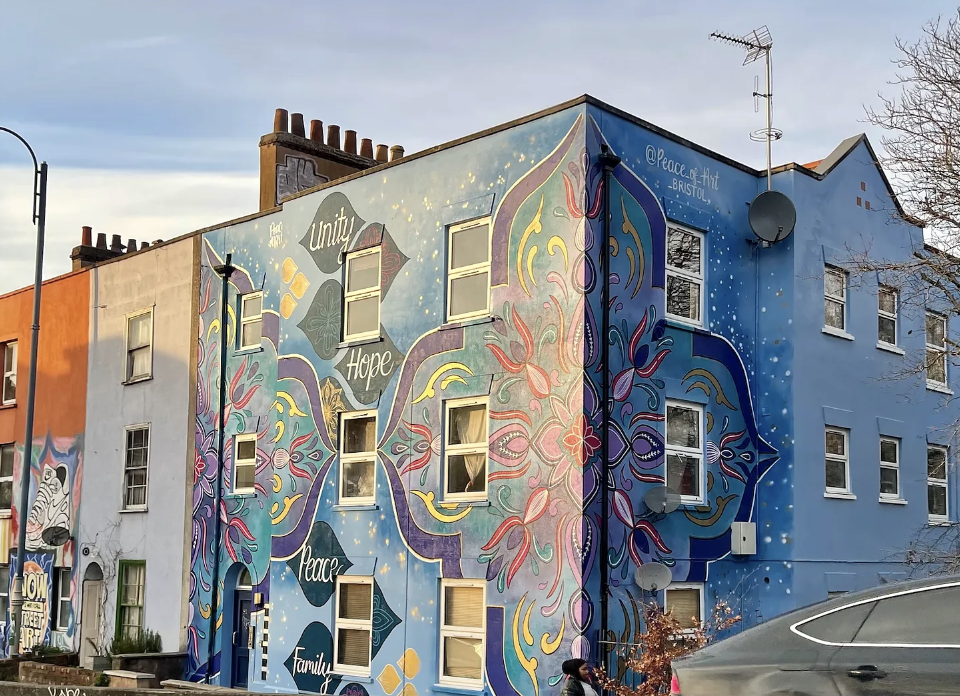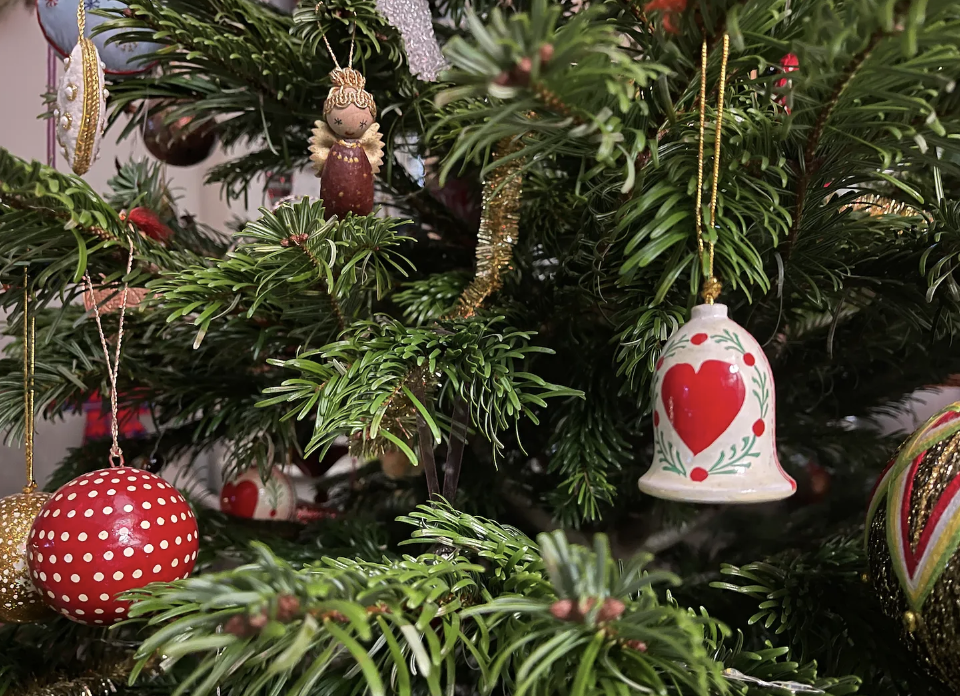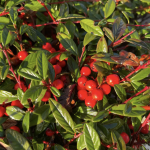On rituals
Good morning. I hope this finds you safe and well. I am waking up this weekend to the visceral realisation that it’s already Christmas. I expected to feel this way – we were so busy, so rushed, and so exhausted in autumn that I predicted this: Christmas came suddenly! While we managed to prepare the presents and the tree and plan everything a bit earlier than usual, the holiday weekend still feels sudden.
Somehow, I feel that in the new, consumerism-driven world, there is not enough time to prepare, pause and take the holidays the way I would like. On the one hand, shops fill up with Christmas decorations at the end of…August (yes, my local one did!). Playing Whamageddon feels like our only act of resistance. On the other hand, when we arrive for the actual few days, everything feels rushed, travel is stressful, and neighbours are losing their tempers. Everything feels short-fused.
What if a different way was possible? This year, I wish everyone peace—calm, quiet, peaceful holidays (whichever they celebrate). I am biased, of course, because I went to school so close to the Ukrainian border that it’s virtually impossible to ignore the tragedies unfolding there and thus pray for peace. I wish my Polish, Ukrainian, Belarusian and Russian friends peace this Christmas.
And then I think of all of us globally. This holiday season feels like a fantastic opportunity to slow down, reflect, and restore. Simply rest. In whatever form that rest works for you. Make time for yourself, for your family, and for your friends to rest collectively, too.

(Streetart in Bristol)
Now, I am aware that stress, anxiety and grief can come up for many of us this season too. Re-connecting with family can be difficult. Travelling can be so overwhelming when everyone’s so emotionally sensitive or generally excited. Socialising can be really hard after a few years of lockdowns. The time of the year can be triggering too, so I hope you can find YOUR peaceful way through this time.
In fact, I think individual agency is the most important factor in safely navigating celebrations and rituals in general. I speak of systems and systemic context a lot. Still, when it comes to holidays, I really think we need to go back to the basics of Rogerian core conditions of active listening: unconditional respect, authenticity (called in our profession “congruence”), empathy and feedback so that there is actually a sense of contact – the other person knows that we hear them, get their point of view and experience and we respect it.
Another psychological term that can be helpful this time of the year is controlled empathy (I wrote more about it here): regulating the smooth transition between cognitive empathy (imagining and thinking about how others may feel this season), emotional empathy (feeling with them – yes, in our bodies, entering their visceral experience) and compassionate empathy (willing to act, to lean in and support them). We really do not know – please read this again: we do NOT know how others are feeling. Our own experience of the world is not that of others, so we cannot assume that the person sitting next to us is okay, is having fun, shares our values, and likes holidays. Suppose we approach this season with a bit of compassion and humility (put our ego aside and open ourselves to the notion that others have their own experience of reality). In that case, we may all sail through this time in peace.
Because rituals can support our well-being, whether it is major celebrations or smaller rituals, repetitiveness and predictability (knowing what comes next) are a perfect prescription for our overall increased anxiety levels, for example. After long periods of physical isolation, our nervous systems are often on higher alert – we are wired for connection, so we need validation from others for healthy functioning. After long periods of isolated work and not much validation from others, we may feel more anxious and uncertain. Asana team identified increased levels of imposter syndrome experience after the lockdowns, and I personally think it is very much linked to the lack of validation (even a simple “hey, this looks cool” from a colleague leaning over your screen or a compliment on the way into the office). Repetitive behaviours give us a sense of validation – we know what is coming next, we anticipate it, and when it happens, we feel safer and calmer.
Rituals work for us for many reasons, but in 2022, I think that our small daily and weekly habits or annual celebrations are a wonderful opportunity to ground ourselves in actions, customs and connections that soothe those natural levels of anxiety. If we study how rituals work, practice compassion and notice our need for personal agency too, we may find peace and joy this season. If we read up about the history of our holidays but also open up to other traditions, we can connect with so many wonderful ways of celebrating. I really enjoy living in the Bristol area here in the UK because the local community is closely connected to Nature-based practices. Each Christmas, my Instagram feed is full of winter solstice rituals and greetings, and it is so opening for my own individual, narrow view of the world.

Whether you celebrate or not celebrate this Holiday Season, I wish you a peaceful, soft, restful and kind time of rest and restoration. Be well!
(Reflection)
If you have a moment to reflect, why not take this opportunity to explore your own digital wellbeing rituals or maybe create new ones?
List your usual working day tasks from the moment you wake up to bedtime. Can you identify any rituals (things you do automatically, without much thinking or special rationale for it)? Can you group them into helpful and unhelpful categories? What serves your wellbeing? What can you shift softly? What is missing?
What are your digital and digital wellbeing habits and rituals related to work? Do you stretch before sitting down to work? Do you cuddle your dog to sleep (like I do) before starting each section of the screen time day? How do you transition into and from the screen work?
Do you have any digital or digital wellbeing habits and rituals outside of work? Do you play any games? Do you check friends’ news or social media updates at a particular time in the day to wind down and reconnect with them? If you reflect on the role of those rituals in your day, what would you like to keep, let go off or change?
Do you have any rituals around digital health? Do you log your runs on Strava automatically, regardless of your location? Do you use any other health-tracking apps? Do you use those collectively with your friends to support each other? Do you consent to all this tracking? Can you hide your location if you want to? How do you celebrate there – others and your own achievements? What supports your safety and wellbeing, and what needs to change?
Think about micro-rituals – for example, emoticons, gifs or hashtags you share in specific situations at work and in private life. Maybe reflecting on the repetitiveness of those tiny little moments of human connection can also help you explore other ways of building rituals into your daily, weekly, and annual routines.
(I will now go and enjoy playing with my dog. Our annual tradition is to get her a new pack of tennis balls – there’s nothing more enjoyable than a dog chasing after a fresh, squeaky tennis ball. Pure joy! Have a joyful rest of the Holiday Season!)
This post was originally posted on Substack in our Syl’s Liberation Psychologies Newsletter.

